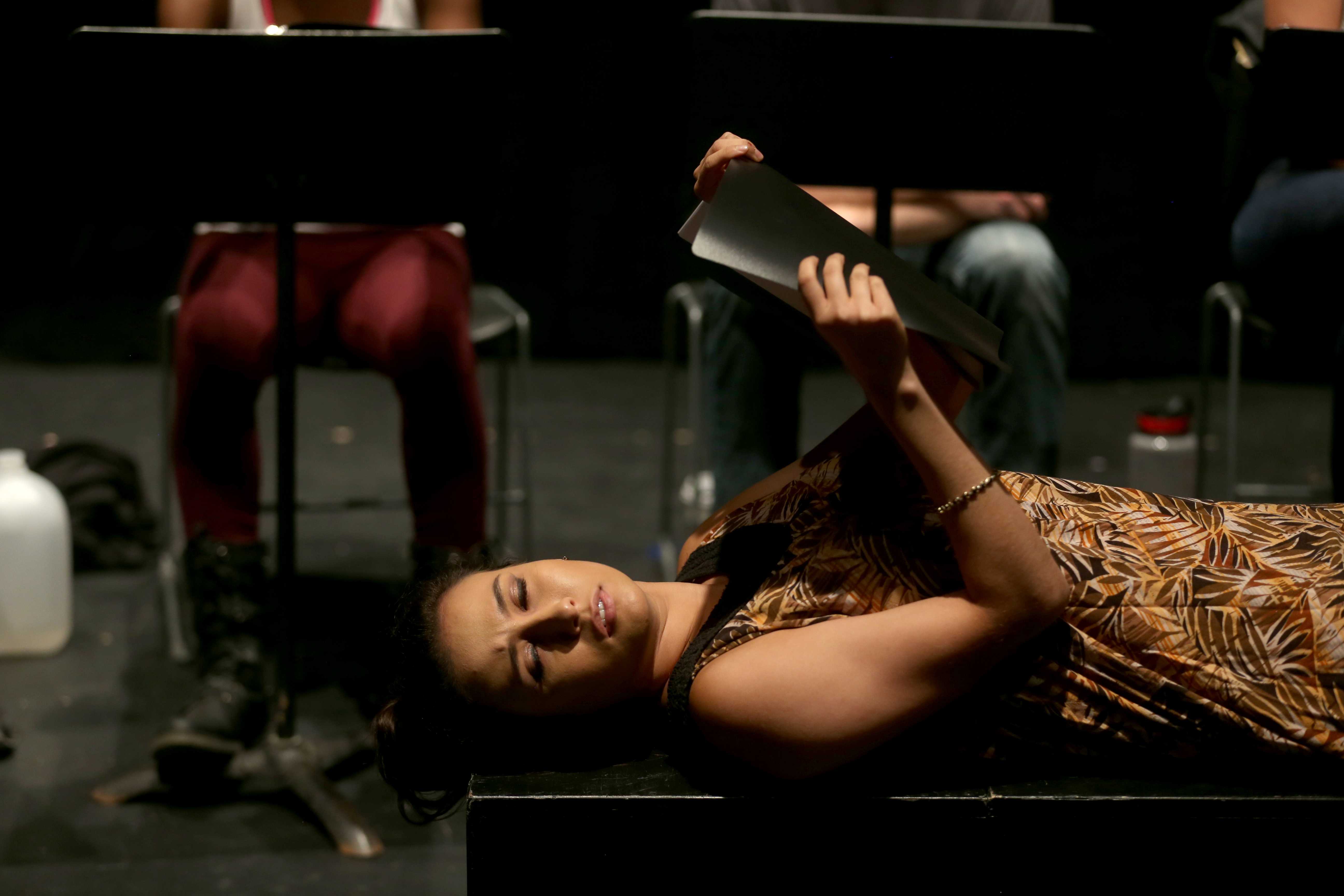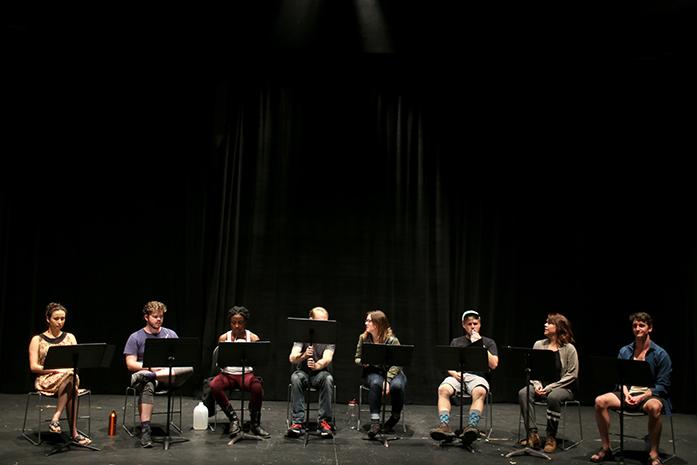At the Theater Department’s Global Express event, writers in the International Writing Program see their works on stage in ways they never anticipated.
By Claire Dietz | [email protected]
Three actors sit around in a group of chairs, scripts in hand — but this not a typical rehearsal. In fact, these pieces aren’t even typical stage plays. Instead, they’re an assortment of literary works written by residents of this year’s International Writing Program. In the program, Global Express, designed through a collaborative effort by the IWP and the Theater Department, M.F.A. theater students adapt the IWP writers’ works — primarily poems and short stories — for the stage.
This is second-year acting M.F.A. candidate Catie Councell’s second year participating in Global Express. She said the event enables her to embrace the universalities of human experience through exposure to the work from all over the world.
“There’s not a ton of collaboration [in regular acting],” she said. “We got tidbits and breadcrumbs and that’s it because, for the authors, this was completed. But these writers offered personal insight about the story [or] their culture.”

While the authors gave the cast artistic liberty in bringing the pieces to the stage, there were still certain tests they faced, such as navigating the languages and getting their execution to a point at which the audience could understand the works’ potential meanings.
“It becomes about the language: what do these vowels or sounds do?” Councell said. “What do they do to you and how can we embody that on stage so their words are highlighted?”
Skyler Matthias, a UI senior studying theater, said he was excited to work with brand-new, previously unadapted texts.
“It’s fun for us to take a story that may not have been for the stage,” Matthias said. “It really engages [the authors’] own ideas, and they get excited about their work. It might not have been something they anticipated happening because they never wrote it for the stage.”
Theater Professor Eric Forsythe became the production director two years ago after working eight years in production. He said he continued to work with Global Express through the years because people needed to hear the international writers’ voices.
“The material is fresh and cutting-edge and [from] all over the world,” Forsythe said. “Developing pieces with unusual material — or [finding] pieces you didn’t expect to have theatrical or dramatic impact — can have an impact.”
Matthias said one of the obstacles he has personally faced is because he and other actors are so used to scripts and clear-cut story lines, it is very hard to work with pieces that don’t have linear narratives, such as poetry.
“Stories exist everywhere and can exist in anything,” Matthias said. “There’s a poem about parkour that explores what it is through poetry, and by engaging with what it does to our voices, we imagine doing parkour with poetry.”
He noted that “it challenges us [not having a story line], but that doesn’t mean the story doesn’t exist. [In fact], the story is still powerful and engaging. It’s an incredible challenge but so exciting to be thrown into these different worlds.”
Councell said she recognizes the inherent obstacles the program poses for her and her colleagues, but everything they do “is about the words and the authors — [the cast is] just in service to that.”
“Being able to speak these poems out loud … brings the poem to life in a different way than the poets may have ever even considered,” she said. “There are some difficulties because you could just read it. How can you make [the story] clear to the audience and really bring out the images with the tools and the words the author gave us?”
Cristina Goyeneche, another actor in the production, perhaps summed up the problems the actors face most effectively: “They’re bringing the narrative point of view, as opposed to a script, [which] is storytelling as opposed to interacting with the people on stage with you.”
While difficult, working with these authors and their pieces has ultimately reaped more benefits than drawbacks.
Emelia Asiedu, who is from Ghana, was excited to meet Nigerian writers as well as others from West Africa.
“It’s nice to hear the back stories for these pieces as well,” Asiedu said. “They’re incredible sources of inspiration, and it’s nice to hear how they were inspired.”
Forsythe said he sees Global Express as a way to meet artists and to talk about what they love the most: their art.
“It’s a great opportunity to meet these people at the artistic crossroads, apart from meeting them as human beings,” he said. “It’s what they live for. We all live for our art, and that’s where we cross.”



